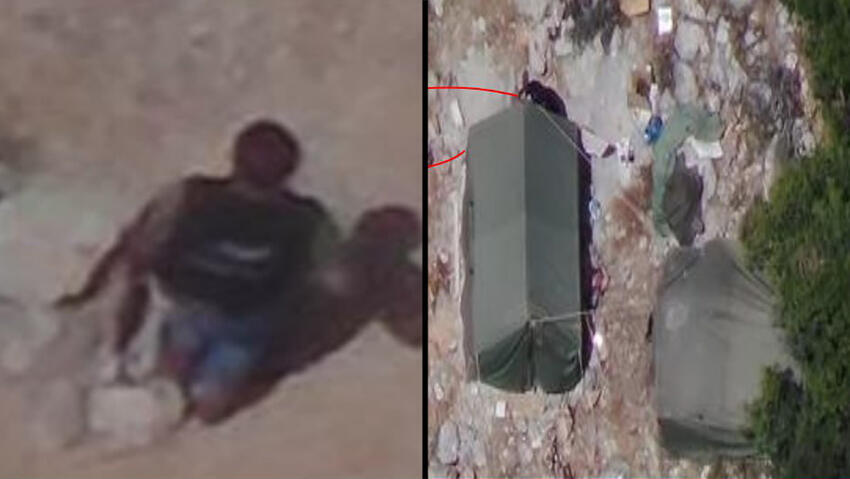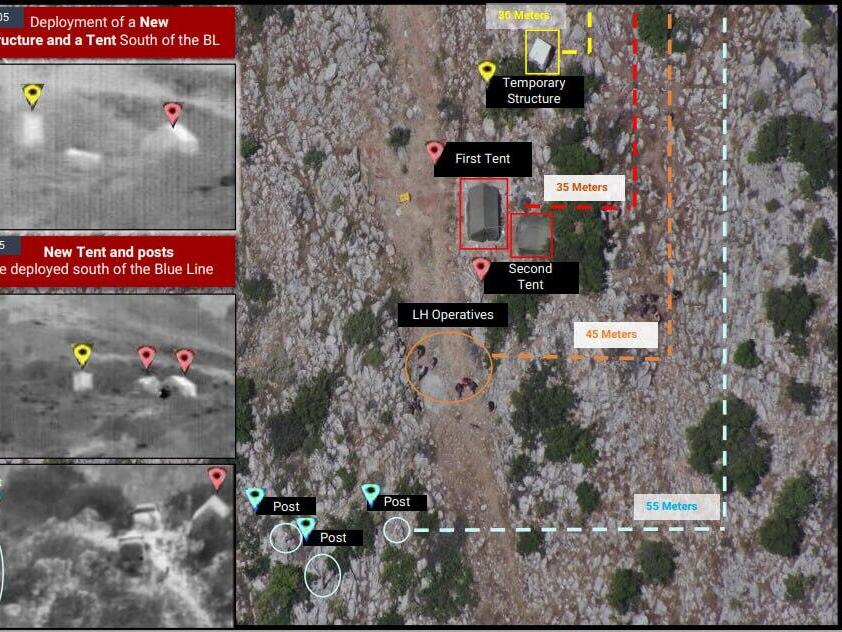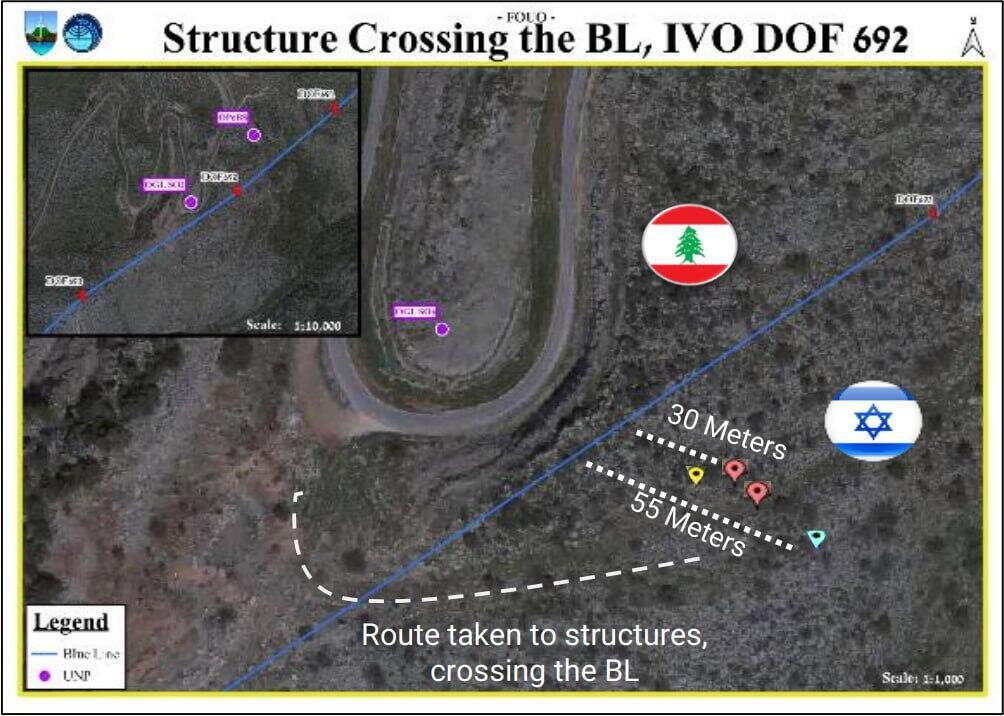Getting your Trinity Audio player ready...
Israel can't rely solely on diplomatic efforts to pressure Lebanon to expunge the Hezbollah post erected on the Israeli side of the border, the Tel Aviv-based Institute of National Security Studies (INSS) warned Sunday.
Read more:
Experts urged that Jerusalem must act "even at the cost of a limited escalation in the area." Israel is diplomatically engaging with several countries, including France and the United States, to exert pressure on Lebanon to evacuate the Hezbollah tents. In Jerusalem, they set a final deadline followed by a threat: if Hezbollah does not remove the tents, Israel will take action.
Concurrently, the Israel Defense Forces (IDF) are operating covertly against the Lebanese army and applying diplomatic pressure through the United Nations Interim Force in Lebanon (UNIFIL).
Images published by the INSS headed by former IDF Intelligence Maj. Gen. (res.) Tamir Hayman, the experts outlined concerning conclusions regarding the circumstances of the event and its implications for the escalation between Hezbollah and Israel, as well as the erosion of deterrence against the terror organization, which is "acting more brazenly and aggressively than before."
According to security experts, "the ongoing process of Hezbollah's power-building, combined with the interpretation of our forces' actions as avoiding direct confrontation with the organization, leads to a serious strategic situation that could lead to escalation. Whether Hezbollah is operating out of desperation due to the difficult situation in Lebanon and seeks to justify its existence, or whether the organization is acting out of arrogance and exaggerated self-confidence, the trend is dangerous and must be stopped."
The INSS presents an increase in recent exceptional events in which excessive audacity is evident from the Iran-backed terrorist organization, which is willing to risk in a manner that could lead to a full-blown war. These include Hezbollah's threats regarding the issue of Israeli gas operations in disputed waters, the planting of an explosive device at Megiddo Junction in northern Israel, and the firing of nearly 40 rockets from Lebanon during the Passover holiday. Although these actions were carried out by Palestinian elements, it is reasonable to assume that the preparations and infrastructure were established with Hezbollah's knowledge. Concurrently, there is an increase in the presence of Hezbollah operatives along the border and their readiness to engage with the IDF.
The security and military-strategic researchers at the institute believe that "Hezbollah's behavior is driven by its misguided understanding that domestic difficulties since the formation of the current government signal weakness, and that Israel has no interest at this time in engaging in a conflict with it. In our understanding, Hezbollah is also not interested in a wide-scale military confrontation but interprets the developments as an opportunity for improvement in its 'deterrence' against the IDF and for expanding its presence in southern Lebanon and control of the border. Hezbollah relies on Israeli interest to contain the events and prevent widespread escalation, and therefore is not concerned about tensions."
The INSS recognizes that the initial establishment of the tents began as a mistake by operatives in an area unaware of the precise location of the Blue Line – the border between Israel and Lebanon, and several days passed before the IDF conclusively proved the infiltration of armed organization members into Israeli territory.
"The continued presence and expansion of the tents serve Hezbollah in enhancing its position as the 'defender of Lebanon' to the Lebanese public and emphasizing its importance for Iran and its central role within the 'axis of resistance against Israel'," explained the researchers at the institute.
INSS also noted that "Israel took the correct step by initially resorting to diplomatic channels to expose Hezbollah's violations of UN Security Council Resolution 1701. The diplomatic process should be pursued while focusing on the timing and establishing legitimacy for the possibility of Israeli action to remove the tents. However, assuming that no progress has been made on the diplomatic front since the event was exposed two weeks ago, Israel must act with determination and ingenuity to remove the tents, even at the cost of limited escalation in the area."
Similar positions were also voiced by researchers at the Alma Research and Education Center, which focuses on Israel's security challenges in the northern arena. The researchers estimated last week that Hezbollah continues to generate tension and provocations "with the intention of provoking a full-scale military escalation with Israel and out of internal interest to strengthen its power in Lebanon." They also highlighted that, last summer, Hezbollah Secretary-General Hassan Nasrallah "prepared an ideological and religious justification for the process."





